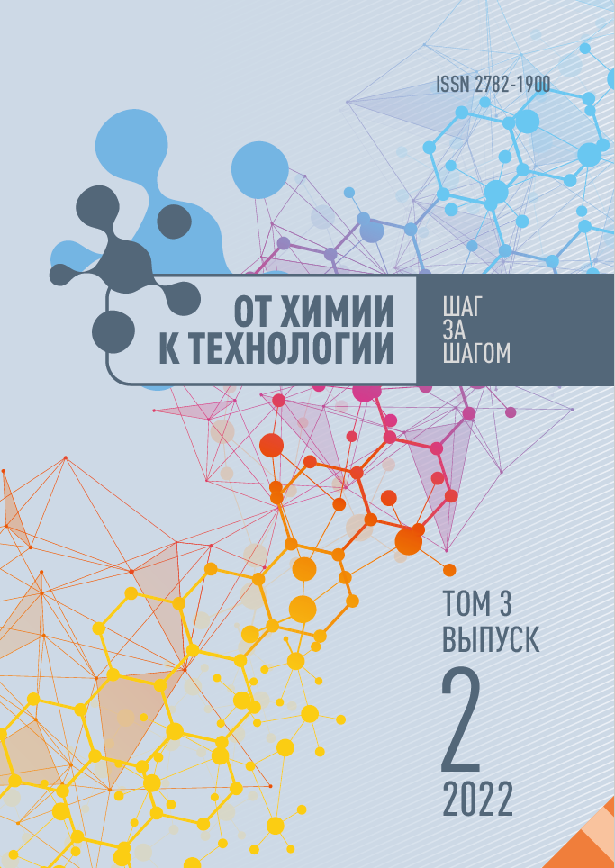Ярославль, Ярославская область, Россия
Ярославль, Ярославская область, Россия
Ярославль, Ярославская область, Россия
Ярославль, Ярославская область, Россия
Ярославль, Ярославская область, Россия
с 01.01.1974 по настоящее время
Ярославль, Ярославская область, Россия
УДК 549.7 Прочие соединения кислородных кислот
The study dwells on the effectiveness of application of magnetite from technogenic waste for treatment of wastewater from heavy metal ions. In order to assess the significance of the influence of the main factors affecting the efficiency of waste treatment we made the analysis of variance.
analysis of variance, regression analysis, magnetite, iron-containing waste, heavy metal ions, adsorption
1. Dubrovskay, O.G., Kulagin, V.A., Kurilina, T.A. & Li, F.Ch. (2017) Application of modified sorption material for efficient wastewater treatment of galvanic production, Journal of Siberian Federal University. Engineering and Technologies, 10(5), pp. 621-630. DOI:https://doi.org/10.17516/1999-494X-2017-10-5-621-630.
2. Baranov, A.N., Mikhaylov, B.N. & Mikhaylov, R.V. (2017) Electroplating technology. Irkutsk: Izd-vo Irkutskogo nats. issled. tekhnicheskogo un-ta (in Russian).
3. Vinogradov, O.S. & Vinogradova, N.A. (2017) Reduction of resource consumption at washing operations of electroplating facilities, XXI vek: itogi proshlogo i problemy nastoyashchego plyus, 5-6(39-40), pp. 11-17 (in Russian).
4. Alekina, E.V. & Sumarchenkova, I.A. (2016) Analysis of wastewater treatment methods used at machine-building enterprises, Vodoochistka. Vodopodgotovka. Vodosnabzhenie, 1(97), pp. 56-61(in Russian).
5. Kalaeva, S.Z., Markelova, N.L., Gennadyeva, A.M., Kalaev, R.E. & Kopylova, V.E. (2021) Electrochemical method for producing magnetite for wastewater treatment, From Chemistry Towards Technology Step-By-Step, 2(4), pp. 18-24. DOI:https://doi.org/10.52957/27821900_2021_04_18 [online]. Available at: http://chemintech.ru/index.php/tor/2021-2-4.
6. Garaschenko, V.I., Astrelin, I.M. & Garaschenko, A.V. (2014) Investigation of active parameters of magnetic treatment process of thermal power engineering water media, Voda i ekologiya: problemy i resheniya, 4(60), pp. 10-24 (in Russian).
7. Zhakina, A.Kh., Arnt, O.V., Vasilets, E.P., Shur, V.Y. & Volegov, A.S. (2020) Magnetically active compound based on humic acid and magnetite as a sorbent for heavy metals, Zhurnal prikladnoj himii, 93(9), pp. 1317 1322. DOI:https://doi.org/10.31857/S004446182009008X (in Russian).
8. Solov'ev, M.E. (2012) Experimental and statistical methods in chemical engineering research using Open Source software: tutorial. Yaroslavl: Izd-vo YaGTU (in Russian).
9. Vakhnyuk, I.A., Kirichenko, K.Y., Golokhvast, K.S. & Shabalina, E.G. (2021) Review of studies on the impact of factors of electroplating production on humans and the environment. Gal'vanotekhnika i obrabotka poverhnosti, 29(1), pp. 9-22. DOI:https://doi.org/10.47188/0869-5326_2021_29_1_9 (in Russian).
10. Lukashevich, O.D., Algunova, I.V. & Sarkisov, Y.S. (2004) Physical and chemical aspects of integrated use of wash water sediments, Vestnik Tomskogo gosudarstvennogo arhitekturno-stroitelnogo universiteta, 1(9), pp. 129-145 (in Russian).
11. Foner, S. (1959) Versatile and sensitive vibrating – sample magnetometer, Review of Scientific Instruments, (30), pp. 548-557.
12. Bayburtsky, F.S. (2002) Magnetic liquids: methods of production and fields of application, Himiya i himiki, (3), p. 24 (in Russian).
13. GOST 31956-2012. Methods for the determination of chromium (VI) and total chromium (in Russian).
14. GOST 27981.5-2015. High frequency copper. Photometric methods of analysis (in Russian).
15. GOST 6689.2-92. Nickel. Nickel and copper-nickel alloys. Methods of determination of nickel (in Russian).
16. GOST 12697.9-77. Aluminium. Methods for determination of zinc. (in Russian).
17. GOST 12352-81. Steels alloyed and high alloyed. Methods of determination of nickel (in Russian).
18. Dmitriev, K.E., Mukhin, A.S., Korotneva, I.S. & Soloviev, M.E. (2021) Modelling of kinetics of biodegradation of polymer compositions based on polyisoprene with organic fillers, Matematicheskie metody v tekhnologiyah i tekhnike, (6), pp. 86-89. DOIhttps://doi.org/10.52348/2712-8873_MMTT_2021_6_86 (in Russian).








